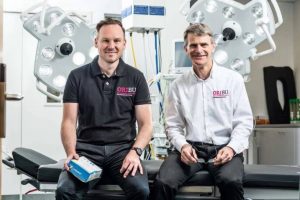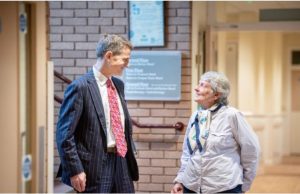Last month, ORI were delighted to feature in Bournemouth University’s “Research in action” campaign, that aims to showcase research projects that are impacting society.
The University’s motto, to learn is to change, runs through all aspects of education, research, professional practice and public engagement, and means that when you join BU, you become part of a community that strives to make an impact on the world around us, aiming for a more sustainable, inclusive and healthy society.
Bournemouth University featured ORI’s work on enhanced recovery after surgery, which is an approach to patient care that aims to better prepare patients for surgery, and to optimise their recovery following surgery.
This may include interventions such as pre-operative education and counselling, so that patients and their families can prepare for the procedure. In addition, it may involve completing additional tests pre-surgery, such as anaemia screening, so that early medical interventions can be administered, and prevent complications from surgery and delays in recovery. Post-operatively, enhanced recovery approaches involve getting patients up and moving as soon as possible after their surgery, which has been proven to reduce complications.
Professor Rob Middleton and Professor Tom Wainwright were among the first people within the UK to implement enhanced recovery approaches within orthopaedics. Their implementation of enhanced recovery at University Hospitals Dorset considerably influenced patient outcomes in 2007, where patients were discharged home earlier than before the approach was implemented.
Since then, Professor Middleton and Professor Wainwright have been leading the way with research and development in the area of enhanced recovery in orthopaedics, by contributing to guidelines, textbooks, publications, conference presentations and implementation.
Professor Tom Wainwright said: “We are delighted that the University chose to feature our work on enhanced recovery in their Research in Action campaign. At ORI, we are driven by the needs of our patients and they tell us that they want the benefits of an operation. Until we can 100 per cent guarantee those benefits, until we reach the goal of a pain and risk-free surgery, we need to continue doing our work.”






